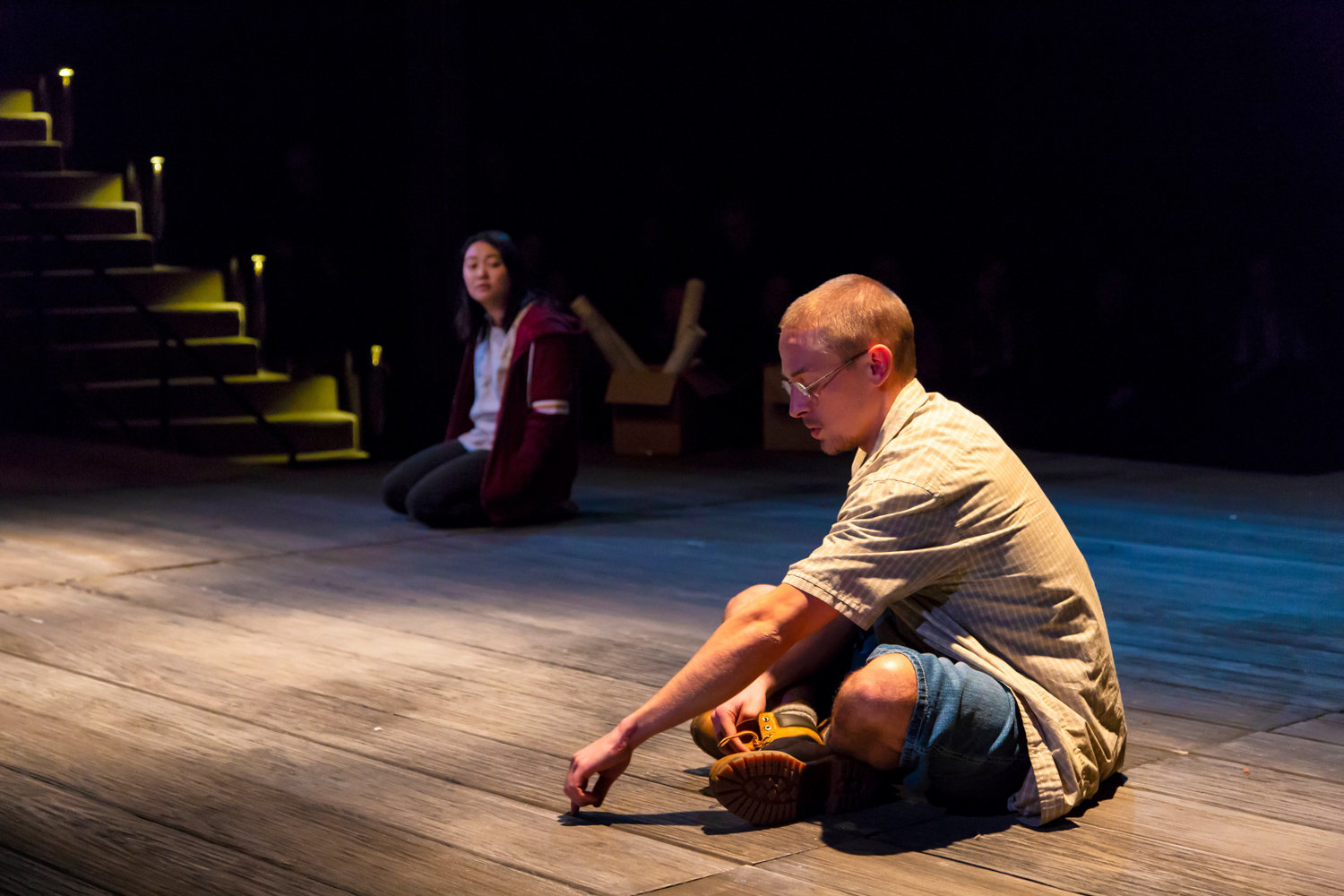Excavating above, below ground in ‘Greater Clements’
Playwright Samuel D. Hunter serves up a heaping spread of classic themes in the Lincoln Center Theater production of his new play, “Greater Clements.”
Time has overtaken this Idaho mining town and left its inhabitants and visitors at a crossroads, unsure of their way forward. The bonds of family and lost love, youth and maturity, and authority and compromise entangle a band of idiosyncratic characters.
Hunter takes us on a deep journey, working always in the present, but with the weight and choices of the past as real and oppressive as the town’s fading economy. We begin, fittingly, at the dark bottom of a literal mineshaft, one of a number of symbolic turns in this hefty three-act drama.
The chief locale in Dane Laffrey’s elaborate set design is a quirky mine museum, one of those off-the-main-road curiosities of a bygone America. We do see a few relics from the mine’s heyday, but for the most part, this museum serves as a kitchen, tavern and front porch for the locals, anchored by the hardy, capricious owner Maggie and her on-the-spectrum son, Joe.
Judith Ivey and Edmund Donovan bring vivid, heroic dimension to these characters, each thoroughly convincing as souls chained together, to the past, and to the diminishing prospects of the present.
Hunter and his director, Davis McCallum, call on the pair to carry an increasingly intricate burden as circumstance and convenience drives them and the plot onward. There is an epic and fated progression to these events, which teeter to a near dramaturgical cave-in at times. But the performances, with the authentic hearts of mother and son at full throttle, carry the day.
“Greater Clements” exists in contemporary America, with all its tidal changes of economies and family, but also on the wistful frontier of the west, with a reach to the even more distant and fraught frontiers of Alaska. The legacies of the pickaxe and time underground, and of lives lost in the quest for ore, remain alive here, just as a particular strain of World War II-era prejudice lingers into a new generation.
The supporting cast — Nina Hellman, Ken Narasaki, Haley Sakamoto, Andrew Garman and Kate MacCluggage — all add steady and distinct contrasts to this ambitious, sprawling work.
The production lurches on its way to climax, however, via a convenient moment of eavesdropping. This choice seemingly interrupts the precision of the well-crafted scenes preceding it, ones where tender moments and whopping confrontations are given careful, equal measure.
But perhaps, in the grand scheme of “Greater Clements,” with its interlocked hazards of personal choice and diminished hopes, this one lost moment is enough, and crucially so.
Perhaps the author proposes one final, fitting metaphor. Like a careless word returning to haunt the speaker, here an overheard but agonizing, heartfelt confession topples everything. Unreality arrives. And we see it, full-on. Hard to believe, but right there.
The perspective of the old tunnels deep underground makes it fit.
Like the doomed souls scratching at rock in the dark bottom of the mine, souls who hang like storm clouds over these proceedings, tragedy lurks, always, just awaiting that one unwitting spark.






